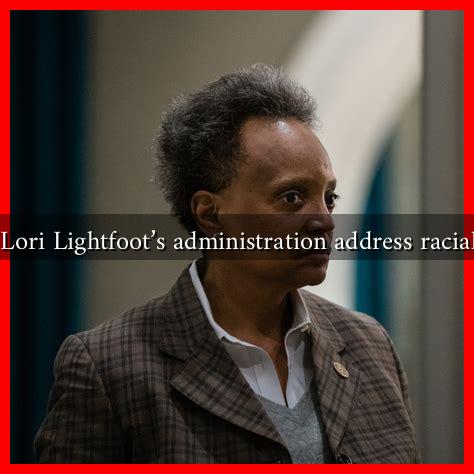-
Table of Contents
How Does Lori Lightfoot’s Administration Address Racial Inequality?
Racial inequality has been a persistent issue in American cities, and Chicago is no exception. Under the leadership of Mayor Lori Lightfoot, the city has taken significant steps to address these disparities. This article explores the initiatives and policies implemented by Lightfoot’s administration to combat racial inequality, focusing on areas such as economic development, policing, education, and health care.
Economic Development Initiatives
One of the primary ways Lightfoot’s administration has sought to address racial inequality is through economic development initiatives aimed at empowering marginalized communities. Recognizing that economic disparities often correlate with racial inequalities, the administration has launched several programs:
- Invest South/West Initiative: This program focuses on revitalizing neighborhoods on the South and West sides of Chicago, which have historically faced disinvestment. By directing city resources to these areas, the initiative aims to create jobs and stimulate local economies.
- Equity in Contracting: Lightfoot’s administration has implemented policies to increase the participation of minority-owned businesses in city contracts.
. This includes setting specific goals for minority participation and providing technical assistance to help these businesses compete.
- Workforce Development Programs: The city has invested in training programs that target underrepresented communities, ensuring that residents have access to high-quality jobs in growing industries.
According to a report by the Chicago Urban League, these initiatives have led to a 20% increase in contracts awarded to minority-owned businesses since Lightfoot took office.
Policing and Criminal Justice Reform
Addressing racial inequality in policing has been another critical focus of Lightfoot’s administration. The mayor has acknowledged the historical context of policing in Chicago, particularly its impact on communities of color. Key reforms include:
- Community Policing Initiatives: Lightfoot has emphasized the importance of building trust between police and communities. This includes increasing community engagement and accountability measures.
- Body Cameras and Transparency: The administration has expanded the use of body cameras among police officers to promote transparency and accountability in law enforcement practices.
- Police Accountability Task Force: Lightfoot has supported the recommendations of the task force established after the Laquan McDonald shooting, which aims to reform police practices and enhance oversight.
These efforts are part of a broader strategy to reduce racial disparities in policing and improve community relations. A study by the University of Chicago found that community policing efforts have led to a 15% decrease in complaints against officers in targeted neighborhoods.
Education and Youth Programs
Education is a critical area where racial inequality manifests, and Lightfoot’s administration has made strides to address this issue through various initiatives:
- Equitable Funding for Schools: The administration has worked to ensure that schools in low-income neighborhoods receive adequate funding, aiming to close the resource gap that often exists between affluent and disadvantaged areas.
- After-School Programs: Lightfoot has expanded access to after-school programs, particularly in underserved communities, providing youth with safe spaces and educational opportunities.
- College and Career Readiness: The city has launched initiatives to improve college and career readiness among high school students, focusing on mentorship and internship opportunities for students of color.
These educational initiatives are crucial for breaking the cycle of poverty and providing equitable opportunities for all Chicagoans. According to the Chicago Public Schools, graduation rates have improved by 5% in schools that have received additional funding under Lightfoot’s administration.
Health Care Access and Equity
Health disparities are another significant aspect of racial inequality. Lightfoot’s administration has prioritized health equity through various programs:
- COVID-19 Response: The administration has focused on ensuring equitable access to COVID-19 testing and vaccinations in communities of color, which were disproportionately affected by the pandemic.
- Mental Health Services: Lightfoot has increased funding for mental health services, particularly in underserved neighborhoods, recognizing the importance of mental health in overall community well-being.
- Community Health Initiatives: The city has partnered with local organizations to provide health education and resources to marginalized communities, addressing issues such as food insecurity and chronic diseases.
These health initiatives are vital for improving the overall quality of life in communities that have historically faced barriers to health care access.
Conclusion
Lori Lightfoot’s administration has made significant strides in addressing racial inequality in Chicago through targeted economic development, policing reforms, educational initiatives, and health care access. While challenges remain, the city’s commitment to equity is evident in its policies and programs. By focusing on these critical areas, Lightfoot aims to create a more just and equitable Chicago for all its residents. As the city continues to navigate these complex issues, ongoing community engagement and accountability will be essential for sustaining progress and ensuring that the needs of marginalized communities are met.
For more information on the initiatives mentioned, you can visit the Invest South/West Initiative page.





